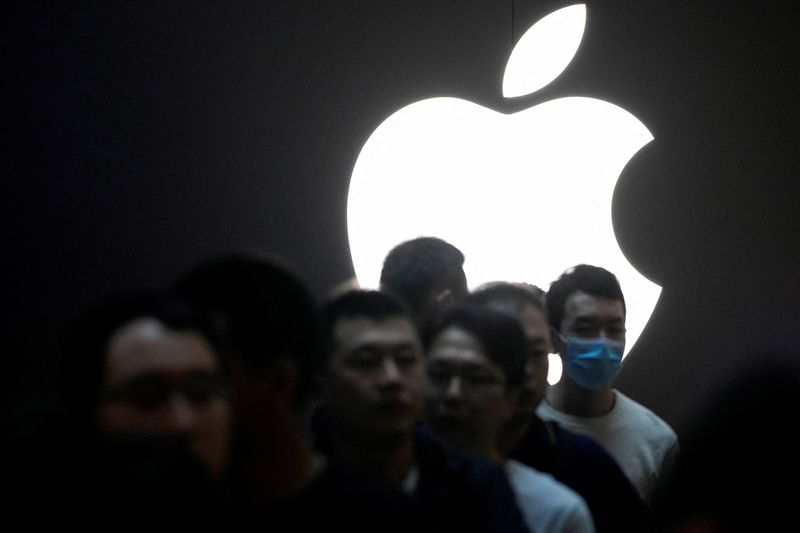By Josh Ye
HONG KONG (Reuters) - Apple (NASDAQ:AAPL) has started requiring new apps to show proof of a Chinese government licence before their release on its China App Store, joining local rivals years that had adopted the policy years earlier to meet tightening state regulations.
Apple began last Friday requiring app developers to submit the "internet content provider (ICP) filing" when they publish new apps on its App Store, it said on its website for developers.
An ICP filing is a longtime registration system, required for websites to operate legally in China, and most local app stores including those operated by Tencent and Huawei have adopted it since at least 2017.
To get an ICP filing licence, developers need to have a company in China or work with a local publisher, which has been an obstacle for a large number of foreign apps.
Apple's loose ICP policy has allowed it to offer far more mobile apps than local app rivals and helped the U.S. tech giant boost its popularity in China, its third-largest market behind the Americas and Europe.
The decision by Apple comes after China further tightened its oversight over mobile apps in August by releasing a new rule requiring all app stores and app developers to submit an "app filing" containing business details with the regulators.
Chinese regulators last week released names of the first batch of mobile app stores that have completed app filings, but Apple's App Store was not among those on the list.
Apple did not respond to a request for comment.
Apple's compliance status could affect the accessibility of hundreds of thousands of apps on its App Store in China, including popular foreign apps like X, formerly known as Twitter, and Telegram, which became popular during protests against COVID-19 lockdowns last year.
Apple is also facing other troubles in China as Beijing focuses more on security, such as some government agencies banning employees from using iPhones, as Reuters reported last month.
Rich Bishop, CEO of app publishing firm AppInChina, said demanding ICP filings from developers brings Apple one step closer to being fully compliant in China.
The expanded rule issued in August effectively requires the backend of an app to be hosted in China, which last month became a condition for apps to be featured on local Android app stores.
Many developers have taken to social media to voice concerns over Apple's decision, fearing it may further tighten rules to fully comply with China's regulations.
In a post on X, Jinyu Meng, an independent developer, said, "If my apps can't be launched in China without app filing, I will take down my apps [there]."

Some iPhone users in China posted on X saying that they may need to start using Apple accounts from other countries to access their favourite apps.
Under the new rule, apps without proper filings will be punished after the grace period that will end in March next year, while newly developed apps need to comply with the rule from September.